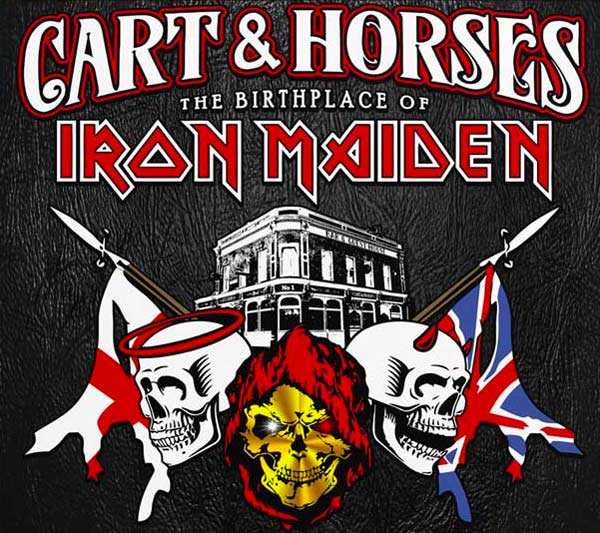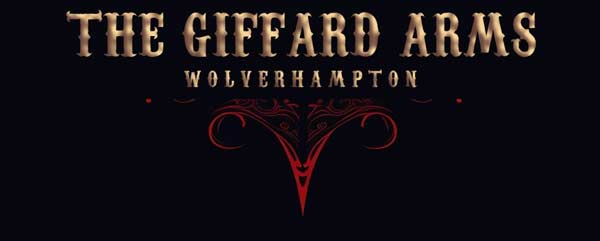Polish Black Metal/Blackened Heavy Metal duo Narrenwind return with their fifth full-length Gorzkie Plony (Bitter Harvest), which they describe as “a return to the spirit of our inaugural work.” For me, it is simply a superb offering that has captivated me on so many levels.
Narrenwind – Gorzkie Plony (Bitter Harvest)
Release Date: 22 September 2025
Words: Jools Green
One of the things I love about Gorzkie Plony is how the Black Metal sound is rounded by the more flamboyant elements of blackened Heavy Metal, especially the huge swathes of leadwork and more showy riff patterns. Add to that the superbly harsh vocal delivery, which has a distinctively Polish Extreme Metal style, which I also love. The combination of these two elements delivers a sound that is dark and brutal yet compellingly engaging.

Lyrical content-wise, it is also a fascinating offering. Performed in Polish, the band members Ævil and Klimørh explain further that “Life is a journey towards the inevitable, and through our actions, secrets are either brought to light or left shrouded in mystery.
“This is the story we want to tell on our new record, as we stand in the shadow of Polish poets like Krzysztof Baczyński, Halina Poświatowska and Tadeusz Miciński. Their works or excerpts from their poems are featured in three of the eight songs on the new album. In one of the compositions, we also used lyrics by Olga ‘Kora’ Sipowicz, performing a cover of a Maanam song.”
Opening track Córko wichrów (O Daughter Of Winds, Devils And Night) delivers a dark and reflective atmosphere. The semi-spoken raw vocals turn harsher midway, balanced superbly against the very emotive dark melody that ebbs and builds in waves across the track. The second half and closing leadwork is just sublime. A powerfully moving opening piece.
The first track to feature the words of a Polish poet is Kantylena (Cantilena), here the work of poet/novelist Krzysztof Baczyński, whose poems, as a generalisation, often depicted the brutality of war but also suggested that love is the only force that can effectively defend a human being against it.
Musically, it is melodic and catchy with a blackened edge. With more melodic swathes bursting through and lifting the mood, midway, it turns more reflective and dark, and the vocals, which are delivered in single-line bursts, turn more acidic. A beautiful yet dark piece that is packed with emotion and atmosphere.
On the next piece, Koniugacja (Conjugation), the lyrics come from a poem by Polish poet and writer Halina Poświatowska, famous for her lyrical, unsentimental poetry on the themes of death, love, and existence. This counld not be more fitting for a Metal band, starkly demonstrated in the opening segment of lyrics (translated) “I shall pass away, you shall pass away, he shall pass away, we pass away let us pass away” and the final segment I “passed away, You passed away, we are gone and that sighing is just the wind, he will be there for eternity, above us, above the water, above the earth.”
Profound, dark, yet beautiful, musically it’s a very up-tempo piece with a determined drive that undulates and twists beneath the sharply acidic vocal delivery. The leadwork elevates the piece and strengthens that matter-of-fact attitude within the lyrics. Superb.
Lyrically bleak but hugely powerful and thought-provoking, Na próżno (In Vain) delivers a strong, driving, haunting repeat melody to support the lyrics. Midway, the beautifully haunting leadwork soars forth briefly, adding so much atmosphere to an already moving piece.
The next piece, Nikt nie wie (No one knows), includes the translated lines, “Mountains in clouds for millions of years. Why in clouds? No one knows” in its first stanza, by nineteenth century Polish poet Tadeusz Miciński. His work is characterised by dense symbolic imagery, elaborate language, and exploration of metaphysical themes. The lyrics are taken from his poem Przy Skale Pisanej (By The Written Rock).
Musically, it reflects the contemplative nature of the lyrics whilst still packing a punch with waves of chugging riffs, generously embellished by repeated bursts of soaring, emotive lead work.
Leaning closer towards the Black Metal side of their sound is Idzie Zmierzch (Dusk Is Falling). But beneath the blackness, you still get bursts of complex melodic elements. The lead work is also there, adding to the depth and richness, but is carefully restrained and set back in the sound a little so as not to detract from the wonderfully dark aura of the piece.
Penultimate offering Statek Głupców (The Ship Of Fools) is lyrically intriguing and esoteric, delivered at a slower, more reflective pace to a rich and beautifully haunting guitar backdrop that echoes rock and Heavy Metal undercurrents alongside the blackened aspect. You get clean reflective drop backs and more of that superbly styled lead work that features so prominently and welcomingly across this album.
Final offering, I-II, I-II (Buoyancy And falling) is a cover of the hugely influential Polish rock band Maanam’s song Raz dwa, Raz dwa, from their third studio album, 1983’s Night Patrol. I love Narrenwind’s interpretation. It takes a more brutal blackened slant with the raw vocals, upping the tempo and adding a d-beat, whilst remaining true to the flow and feel of the original. An excellent cover and a superb album ender to an equally superb album.
Gorzkie Plony was mixed and mastered by Haldor Grunberg at Satanic Audio. The artwork was completed by JRMR. The album also includes session drums by Anti-Christian (Doedsvangr, Beaten To Death, ex-Tsjuder).
Released on 22 September 2025 via Pagan Records, Gorzkie Plony is available as a jewel case CD, black 12″ vinyl, cassette or digital download from Gorzkie Plony | NARRENWIND | Pagan Records.






